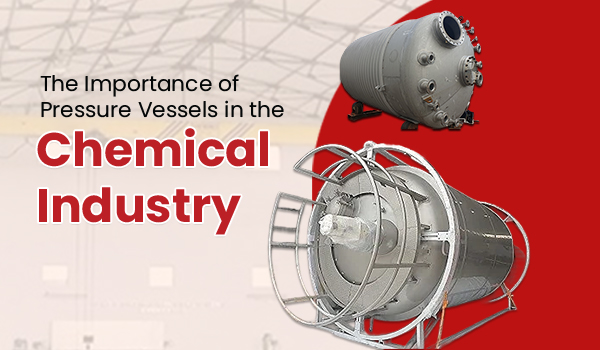
Pressure Vessel Design and Fabrication: Best Practices Understanding the Different Types of Pressure Vessels and Their Uses Safety Considerations for Working with Pressure Vessels Maintenance and Inspection of Pressure Vessels:
Pressure vessels are critical components in many industrial processes, particularly in the chemical industry. They are used for storing, processing, and transporting various substances, including gases and liquids, at high pressures and temperatures. As such, pressure vessel design, fabrication, maintenance, and inspection are critical to ensuring the safety, reliability, and efficiency of industrial operations.
At Rahul Engineering PVT LTD, we specialize in pressure vessel design, fabrication, and maintenance, providing our clients with high-quality solutions that meet their specific requirements. In this blog, we'll be discussing the importance of pressure vessels in the chemical industry and sharing best practices for pressure vessel design, fabrication, safety considerations, and maintenance.
Pressure vessels are essential in the chemical industry, where they are used for a wide range of applications, including storing and transporting various chemicals, fuels, and gases. They are also used in chemical reactions, where they play a critical role in controlling temperature, pressure, and other process variables.
Properly designed and fabricated pressure vessels are essential for ensuring the safety and reliability of chemical processes. They must be able to withstand high pressures, temperatures, and other environmental factors, including corrosion and chemical attack. Moreover, they must be designed and constructed to meet stringent safety regulations and standards, including ASME, API, and other industry-specific standards.
Designing and fabricating pressure vessels require specialized skills, expertise, and equipment. At Rahul Engineering PVT LTD, we follow industry best practices to ensure that our pressure vessels meet the highest standards of safety, reliability, and performance. These include:
Pressure vessels come in various shapes and sizes, depending on their specific application and process requirements. Some of the most common types of pressure vessels include:
Working with pressure vessels requires strict adherence to safety regulations and standards. Some of the key safety considerations for working with pressure vessels include:
#pressurevessels #chemicalindustry #safety #design #fabrication #maintenance #inspection #reactors #agitators #materials #qualitycontrol #ASME #API #safetydevices #training #reliability #performance #distillationcolumns #heatexchangers #separators #storage tanks
